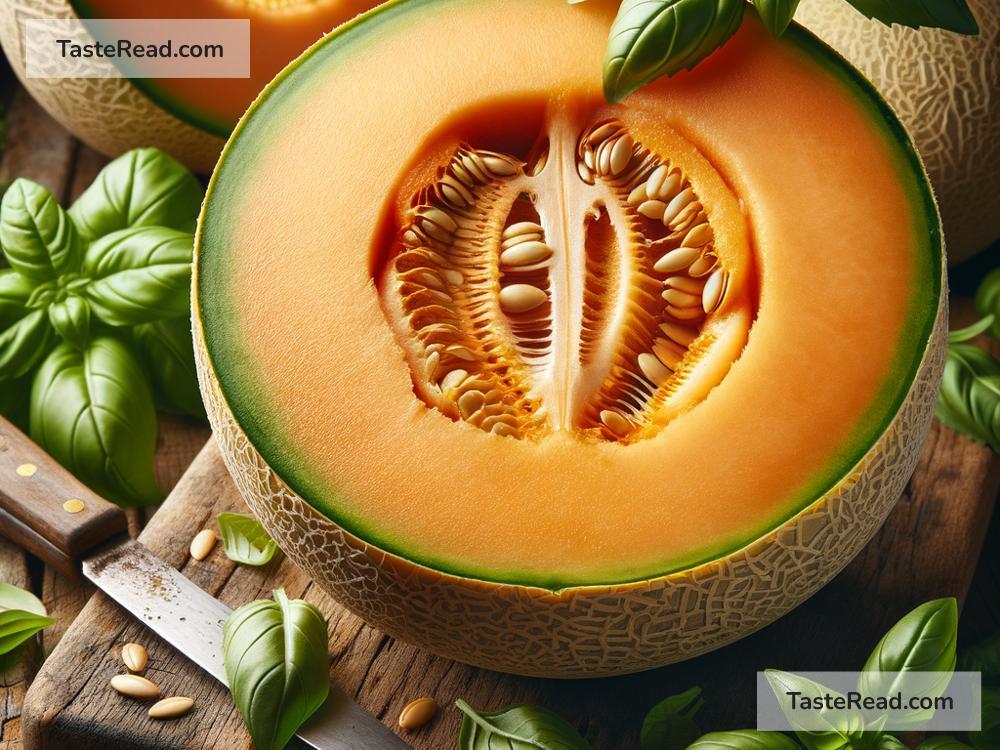Why Cantaloupes Smell Sweet: An Easy Explanation
Think of a warm summer day, sitting outside with a juicy cantaloupe on the table. Before you even take a bite, you notice the sweet, fruity aroma coming from the melon. There’s something magical about the smell of cantaloupes—it’s like nature’s perfect perfume. But why do cantaloupes smell sweet? Let’s dive into this fascinating question and learn about the science behind their beautiful scent.
What Makes a Cantaloupe Smell?
The sweet smell you sense when you cut open a ripe cantaloupe comes from something called volatile organic compounds. These are tiny chemical molecules that float around in the air and reach your nose. When these compounds are released from the fruit, they trigger your smell receptors, making your brain think, “Ooh, that smells sweet and delicious!”
The Chemistry Behind the Sweet Aroma
Inside a cantaloupe, there are natural sugars and different chemical reactions happening all the time. As a cantaloupe ripens, it begins to produce more of these special compounds that make it smell sweet. Some of the main players are esters, alcohols, and aldehydes—a mix of molecules that give cantaloupe its fruity, sugary, and even floral fragrance.
To break it down simply:
– Esters: These are chemical compounds responsible for fruity smells. They also make things like bananas and strawberries smell tasty.
– Alcohols and Aldehydes: These compounds add complexity to the aroma, creating the richness of the cantaloupe’s smell.
A ripe cantaloupe has the perfect balance of these compounds, which is why it smells so amazing.
Ripeness is Key
If you’ve ever smelled a cantaloupe and thought, “Hmm, this doesn’t smell like much,” it’s probably because the fruit wasn’t ripe. Ripeness plays a huge role in how strong and sweet the melon smells. When cantaloupes grow on the vine, they go through a natural process of maturing. During this process, enzymes break down starches into sugars, and the volatile compounds start forming.
A fully ripe cantaloupe is like nature’s masterpiece—it’s packed with aromatic molecules that are just waiting to escape into the air. These compounds become stronger and more noticeable when the cantaloupe is ripe, which is why it smells so good. On the other hand, if a cantaloupe is underripe, the smell will be weaker and less pleasant.
How to Choose a Fragrant Cantaloupe
The next time you go grocery shopping, there are a few tricks to pick a cantaloupe that smells sweet and ripe:
1. Sniff the Stem End: Smell the part where the cantaloupe was attached to the vine. If it has a sweet, fruity aroma, it’s likely ripe.
2. Feel the Melon: A ripe cantaloupe should have a slightly soft texture when you press gently with your fingers. If it’s too hard, it might not be ready yet.
3. Look for Color: A ripe cantaloupe usually has a creamy beige or golden color. If it’s greenish, it might not be fully mature.
4. Check the Weight: A ripe cantaloupe tends to feel heavier for its size because it’s full of juicy goodness.
When you find a melon that smells sweet, you know you’ve picked a winner!
Nature Creates Sweet Smells for a Reason
Have you ever wondered why fruits like cantaloupes smell sweet in the first place? It’s not random—it’s all part of nature’s plan. The aroma of cantaloupes is designed to attract animals, like birds, deer, or humans. When animals smell the sweet tantalizing scent, they’re drawn to the fruit and eat it. The seeds inside the cantaloupe get carried away by the animal and are spread across the environment when the animal moves around. This helps the plant reproduce and grow more cantaloupe vines. Pretty smart, right? Plants use their scent as part of their survival strategy.
Why Do Cantaloupes Smell Sweeter Than Other Fruits?
Cantaloupes belong to the melon family, technically called Cucumis melo. They have a unique ability to produce powerful volatile compounds, more so than some other fruits. For example, while apples and grapes smell nice, their aromas are typically milder compared to the strong, head-turning sweetness of cantaloupes.
The difference may come down to their structure and chemical makeup. Cantaloupes have a high sugar content and complex biochemistry that allows for the creation of richer aromatic molecules. This is what makes cantaloupes stand out in the world of fruits.
Fascinating Fact: The Role of Genetics
Scientists have found that the smell of cantaloupes is partly determined by their genes. Different types of cantaloupes (like muskmelons or honeydew melons) produce different levels of volatile compounds, which means their aroma can vary. Some varieties smell sweeter than others because they have different genetic traits. This is why not all cantaloupes smell the same—nature has given each type its own unique scent.
Final Thoughts
The sweet smell of a cantaloupe isn’t just a random occurrence—it’s the result of a complex mix of natural chemistry, ripeness, and even genetics. From the formation of volatile compounds to the fruit’s survival strategy in nature, every part of the cantaloupe’s aroma has a purpose.
So the next time you enjoy a fragrant cantaloupe, take a moment to appreciate the science behind its sweet smell. It’s yet another example of how amazing nature can be. And hey, don’t forget to savor every bite—it tastes just as sweet as it smells!


